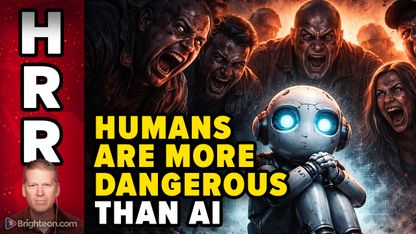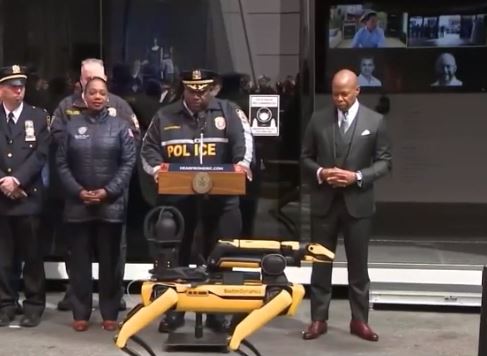
The views of the world's most advanced innovators are rarely in line with the status quo. This seems to be the case with Bill Gates, as he's part of a vocal minority of artificial intelligence (AI) defenders that still maintain the stance that AI is not something to be afraid of. If anything, AI should be welcomed, for in his view, it can be a tool for great positive change in society and humanity as a whole.
Bill Gates' thoughts on AI these days can be summed up in four words: AI is our friend. That's exactly what he said at Hunter College in New York City recently when asked about AI by "Hamilton" composer Lin-Manuel Miranda, while he was with his wife, Melinda Gates.
When asked the question, "What do you think will happen to human civilization with further development in AI technology?" Gates responded that the rise in AI will mean the freedom to do more with less for society. He sees AI as a sort of utility that can multiply the ability of humans to perform certain tasks and allow them to take up roles elsewhere.
According to Bill Gates, AI is just the latest in a long line of game-changing technologies that have re-shaped the way that humans view living and life in general. "AI is just the latest in technologies that allow us to produce a lot more goods and services with less labor," he explained. "And overwhelmingly, over the last several hundred years, that has been great for society."
Bill Gates pointed to the developments in the field of agriculture in order to illustrate his point. He mentioned the fact that there was a time when everyone needed to go out and take up farming. It was arduous and time-consuming, not to mention fairly unreliable in terms of serving as an actual source of food for each day, according to Gates. "We barely got enough food, when the weather was bad people would starve," said Gates. "Now through better seeds, fertilizer, lots of things, most people are not farmers." In that sense, Gates said AI will be able to bring humans immense new productivity.
In some ways, Gates is correct. People who no longer needed to become farmers just to survive were free to look into doing other things, particularly those that weren't being done by anyone else but was sorely needed by the market. With increased productivity in certain areas, displaced workers will then be able to pursue careers elsewhere – such as in teaching, supporting special needs children, and taking care of the elderly.
But the notion that any and all misplaced workers during the takeover of autonomous robots and AI will find job elsewhere may be short-sighted or worse, misguided. As one report states, the fact that people could choose to not go into certain forms of employment because robots could do the jobs better doesn't always turn out to be for the best. In 2014, then-President Barack Obama had to sign a $956 billion farm bill in order to help the agricultural sector as problems rose.
The rise of AI is coming faster than the world has expected it, and a solution is badly needed for the inevitable mass unemployment. It's clear that Gates isn't going to be the right innovator for the job, so one should hope that other thinkers and experts step in to offer something workable.
Learn more about the upcoming robot takeover in Robots.news.
Sources include:
Please contact us for more information.




















